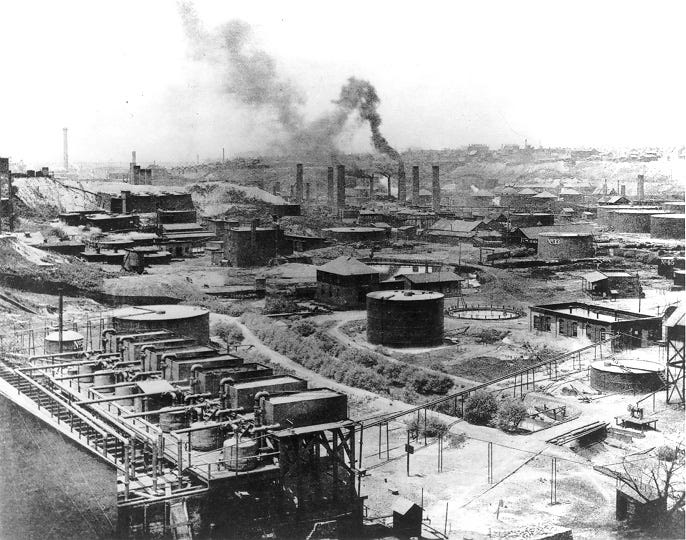Published on July 10, 2024 4:40 PM GMT
Splitting large companies is an antitrust measure which, in its essence, is meant as an act of controlled creative destruction. (Read more about controlled creative destruction here.) When a company achieves monopoly status, it often becomes ridden with different inefficiencies and perverse incentives and does not serve its customers very well. By splitting such a company, the aim is to create smaller, more efficient entities driven by the competition in a free market. What is not obvious, but may actually be the case, is that the shakeup of the management hierarchy caused by the split can disrupt extant patronage networks or break different suboptimal equilibria within the company. In this sense it is similar to democracy where such a shakeup happens each time there's a change in government.
An interesting question is what would happen if such splitting was made automatic: When company exceeds certain size, it will split. Period.
This is clearly a candidate for the "The Most Terrible Measure that Should Never have been Implemented" prize, but let's treat it as a harmless thought experiment and think about the possible consequences.
First, it would be nice for large companies to have certainty instead of playing whack-a-mole with the regulators as is the case today. The future would be predictable and the company would be in control. They could choose to grow and split or stay within the size limit and remain intact.
Now, introducing an incentive for limiting growth sounds like a terrible idea. But what it really means depends on how "size" is measured.
If the "size" is based on expenditures, the real incentive would be to maintain current expenses while increasing revenue, effectively boosting productivity. That sounds much better!
Management and shareholders would have the option to enhance revenue through increased productivity or, if that's not possible, to split the company.
From the point of view of the market as a whole, it's actually pretty nice. Companies are pushed to invest in research and development to increase productivity. Those that can't adapt, maybe because they've got too ossified and dysfunctional, may need to split.
Splitting, in turn, causes a shakeup in the management structure and maybe - only maybe! - the new child companies would avoid some of the problems of the old company and thus become more efficient. But given that they are all competing in the same market, those less efficient would eventually die, while the more efficient will thrive. Rinse and repeat and what you get is a natural selection of sorts.
Risking to state the obvious, there are serious problems with this idea:
If only some countries implemented this model, large companies might move to countries without such regulations, potentially harming the economies of those that do.
What about natural monopolies? The recursive nature of problem makes my head spin. Consider a social network. It grows and suddenly, after hitting some number of users, it splits. But the users want to be on the same platform as everybody else and so they flock to the coolest of the child companies. The company has to grow and immediately splits again. And again. And again. Would that mean that the market would be constantly underprovisioned? Will the unhappy users be randomly transferred to the uncool social network every other week, move to the cool one immediately, just to be transferred to a new uncool one a week later?
The possible economies of scale could never be realized.
Discuss


